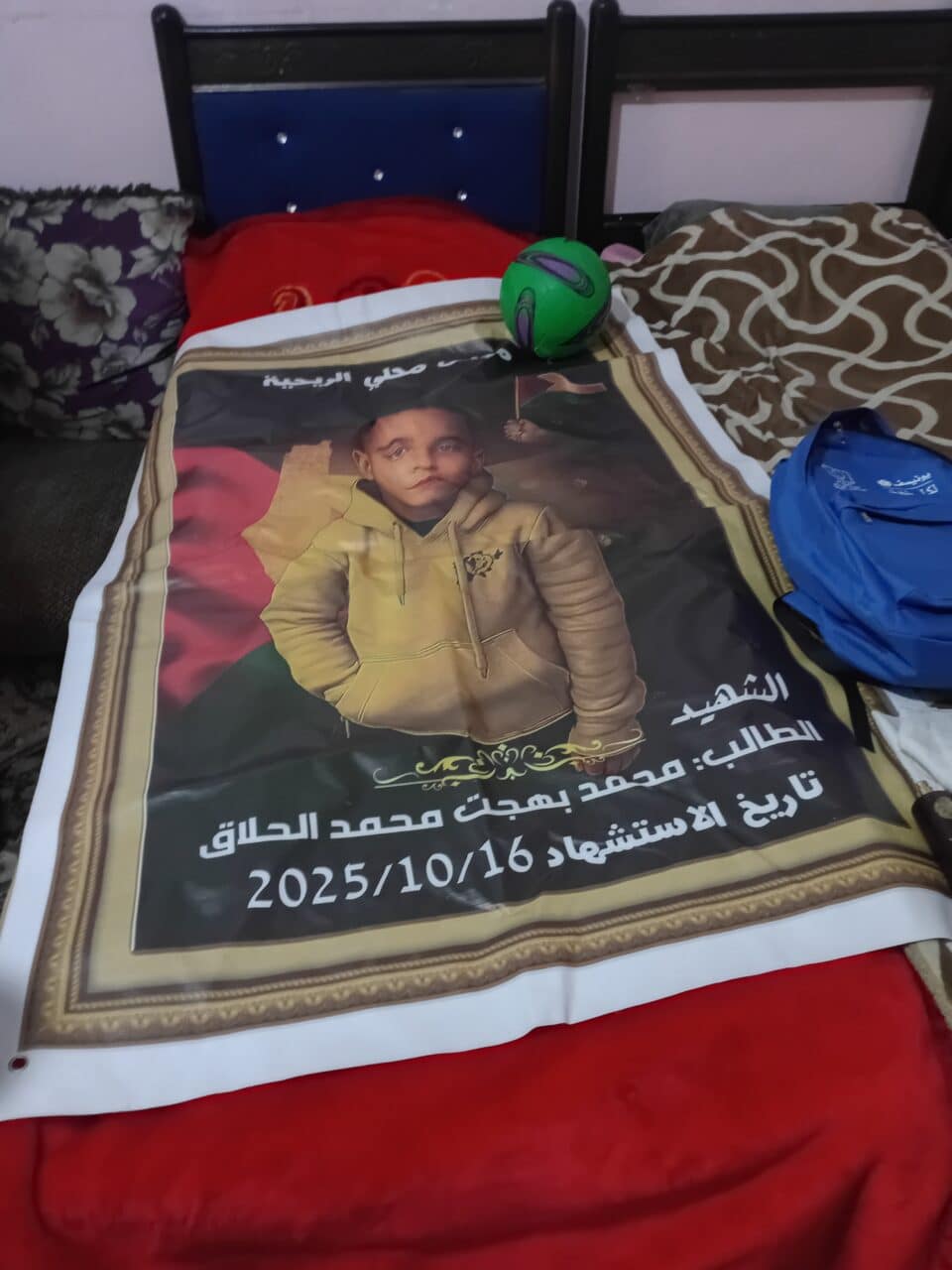On the evening of Thursday, October 16, we got word that Israel Occupation Forces (IOF) shot in the abdomen a nine-year-old boy in al-Rihiya. A small village close to Al Fawwar refugee camp, al-Rihiya is 4 miles outside of Al Khalil (Hebron). It was established in 1951 on 1 square km of land to house internally displaced Palestinians forced to flee their homes upon the creation of the state of Israel in 1948. It’s now home to 13,000 people.
We quickly began receiving minute-to-minute updates and pictures on our phones: Muhammed being rushed to the hospital in the back of a car, held by an adult, blood covering his body. Then came a picture of Muhammed’s dead and wrapped body, as well as photos of Muhammed while he was alive, looking handsome and sweet.
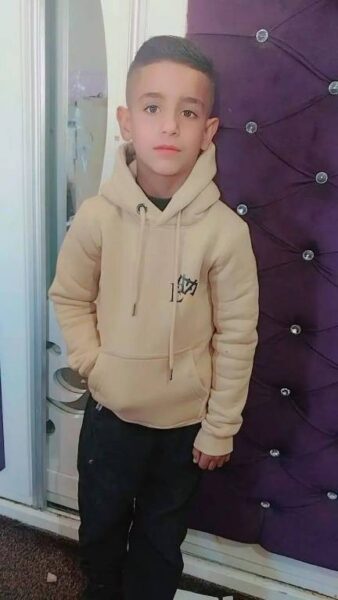
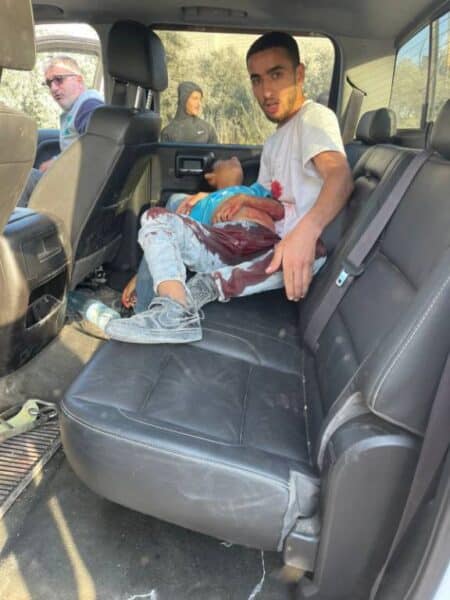
According to Al Jazeera Muhammed was playing soccer on the school playground when he and his friends saw Israeli military vehicles and began to run away. Still, as witnesses attest, an Israeli sniper knelt down, took aim, and fired at Muhammed from 200 meters away in broad daylight. The Israeli army falsely claimed the boy had been throwing rocks; they recanted their statement after footage from the many cameras placed around the village proved otherwise. The bullet had entered one side of Muhammed’s abdomen and exited out the other. Muhammed’s mother, Alia, was told by witnesses that the sniper had raised his arms in the air as if in celebration. He killed a nine-year-old boy. For playing soccer, for no reason.
Alia, her husband, and their five children (ranging in age from 4 to 14 years old) live in poverty. Alia’s husband used to work in “Israel” but lost his job after October 7, 2023, along with 400,000 other Palestinians. Now, he had to live the majority of the week away from his family to work at a grocery store.
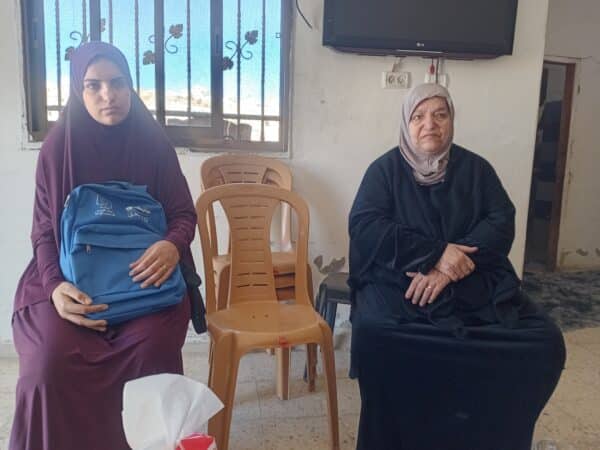
Alia said that the day Muhammed was murdered, he had spent the morning at school and had returned “the happiest I had ever seen him” because he had just received a brand new backpack from UNRWA. Receiving new things was rare and Muhammed had never received a new backpack before. Alia stated that he “immediately and excitedly began unpacking his old school bag and filling his new one.”
Upon noticing the sadness of his older brother, Wajdee, who went to a different school and had not received a backpack, however, Muhammed rushed back to his school to try to get an extra one. He returned dejected, as his mission was not successful.
Since the next day was Friday, a holy day, Muhammed laid out his nice clothes for Friday prayers after school, alongside the brand new backpack he hadn’t yet gotten to use. Now both remain on his bed as a memorial. He then went outside and spread a net with his friends, a common activity he would do to catch birds. Soon after, he ran to his grandmother’s house for a short visit. After his visit, he ran to the girls’ school yard to play soccer with his friends. “Since I knew he was having fun and playing, I took the three younger children to Yatta, 20 minutes away, to go food shopping with my father,” Alia said.
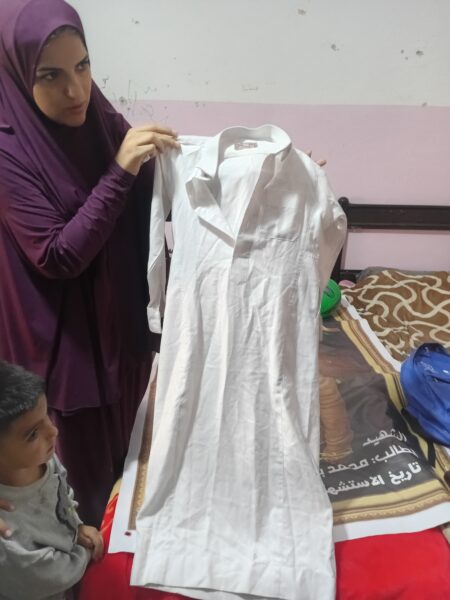
While in Yatta Alia got a phone call that the village had been attacked. She knew instantly that her son had been hurt – a mother’s instinct. Alia opened the family chat on her phone, saw images of her son bleeding, and rushed immediately to the hospital. The car carrying Mohammed’s wounded body to the hospital was delayed by the Israeli military, who after the shooting had put up roadblocks and fired tear gas grenades into the gathering crowd. Mohammed’s father, away at work, began receiving messages and images of his son. That 4 hour car ride, also extended due to Israel’s military roadblocks, “felt to him like four years,” Alia recounted.
Muhammed died before his father could reach the hospital. Alia recalls screaming and being held by her sister and son before losing consciousness. “I have experienced a lot of real pain in my life,” she said, “but nothing like this.” Sharia custom asks that the dead be buried as soon as possible. The family waited until Muhammed’s father returned at 9:30pm before bathing the body of his child, shrouding him in a simple white cloth, and placing him in the family grave on a hillside visible from their home.
The family remains in shock and grief. Alia goes outside several times a day to look at Muhammed’s grave and to weep. Her 4 year old son Ilyas clings to her skirts, constantly afraid that soldiers are going to come and hurt him. Seela, 6 years old and accustomed to her older brother waiting for up to two hours to walk her home, refuses to go to school.
Tragically, Muhammed was not the only young person killed in the West Bank by Israeli forces that day. According to the IMEMC, 20 year old Mahdi Ahmed Kamil was also shot by occupation forces on October 16 as they stormed the town of Qabatia, south of Jenin.
On a visit to Fawwar Refugee camp on the same day we visited Mohammed’s family, we met a man who showed us a picture of his 17 year old son. He was shot dead by the Israeli army on December 26, 2023. “Before my son was shot,” he told us, “my friends overheard the soldiers making a game out of it. Whoever shot a kid would get a Coca-Cola.”
The number of children and teenagers shot dead by Israeli forces in the West Bank has dramatically increased in 2025. According to The New Arab “a Palestinian teenager who held US citizenship was shot dead by the army in April, followed by a 14 year old in June in the town of Sinjil in June, and a 15 year old in July.“
According to UNRWA, as of October 4, 2025, 213 children were among the 1 001 Palestinians killed in the occupied West Bank since October 2023. None of the soldiers who killed these children have been held accountable by Israel. Our host and translator Isaac (name altered for safety), who lives near Fawwar, used to work for the Israeli human rights organization B’Tselem. He recalls filing hundreds of complaints against the crimes of Israeli soldiers each year. “In 2014, the one and only time a soldier was convicted of wrongdoing was when a young soldier stole the wallet of an old man,” he recalled with bitterness. Alia wants nothing more than to see the soldier who killed her son held accountable, but it will never happen.
Israel has condemned the shooting of Alia’s son, saying it went against protocol, and has opened an investigation. Though they have the whole thing on camera, Isaac is certain the investigation will amount to nothing. “I have seen it countless times before.”
“Why does the American taxpayer stay silent in the face of Israel’s crimes?” asked another person we met in Fawwar. “Do the American people hate us?”
Said Isaac, “If we don’t have safety, we don’t have hope. Let us live.”

